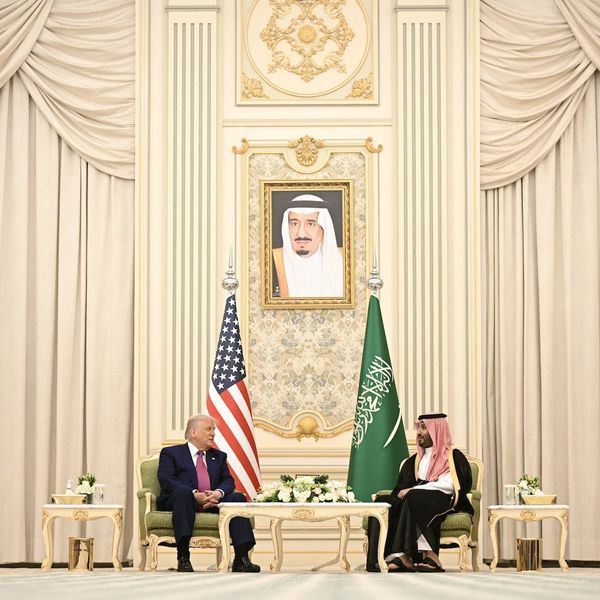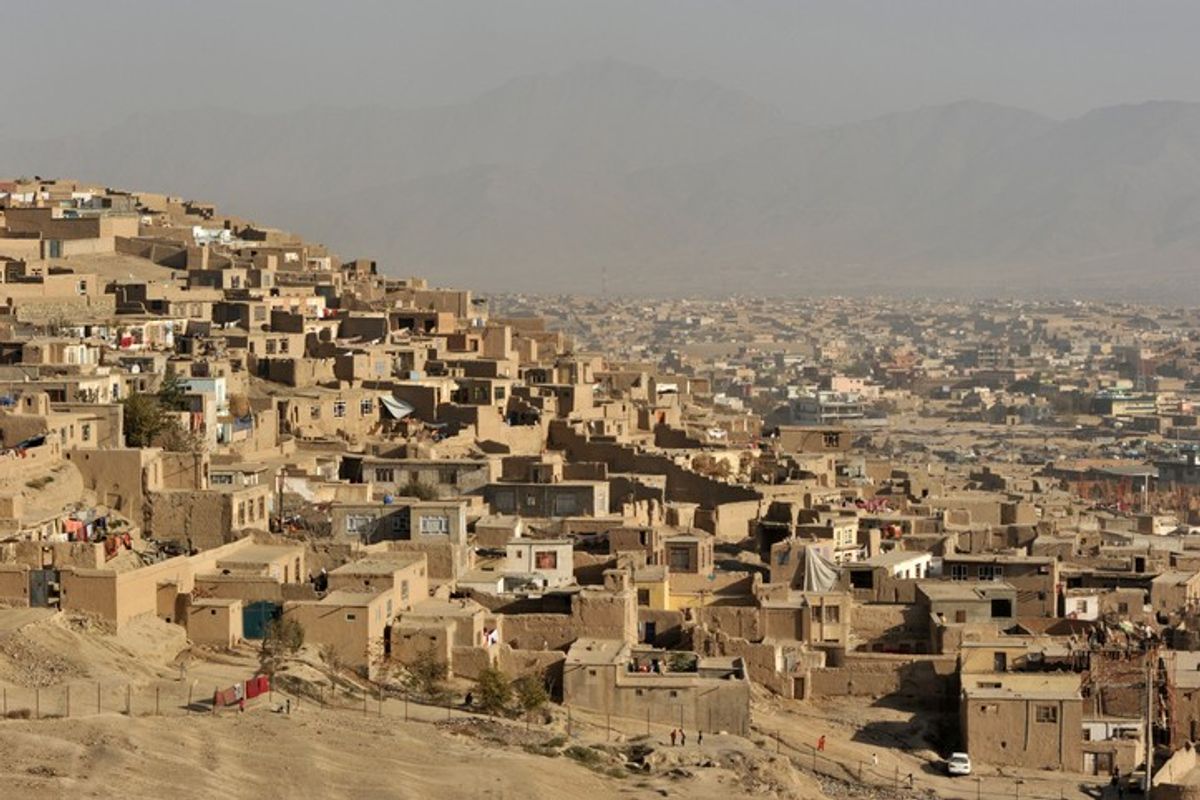As a best-selling author and television commentator, General Michael Hayden (ret.) has been vocal about the threats he sees – both foreign and domestic. The former head of the CIA and NSA (and member of The Cipher Brief’s Board of Directors) has famously said at The Cipher Brief’s Annual Threat Conference – that the world has been more dangerous – but never, has he seen it more complicated.
General Hayden sat down with Cipher Brief CEO & Publisher Suzanne Kelly to talk about the most serious issues with far-reaching consequences, including the murder of Washington Post Journalist Jamal Khashoggi, Iran’s bad behavior, Russia’s grand strategy and the private sector taking a more aggressive posture in cyber.
Here’s a snapshot of their conversation. It’s been edited for length, and in some places, for clarity. You can download the full conversation here in the State Secrets podcast.
Kelly: I thought we'd take a little trip around the world. There's a lot going on these days. You and I have talked extensively before about what you think the top five threats are. Why don't we start there?
Hayden: In no particular order, because I want to save the one that's most concerning until last. Clearly, we talk about terrorism. But we haven't put that, as a nation, at the top of our list for several years now. So, we've had some success. When I talk to wider audiences I make the comment, it's hard for an intel officer to give you good news, but here it is. You look at proliferation, and two actors that come to mind are Iran and North Korea. And this administration has stirred both pots simultaneously, which may not be the best way to handle this. But frankly, it was clear where Korea was going, and if there wasn't any pot-stirring, we were going to end up in a very bad place anyway. So I somewhat understand that. Iran's a little different. We had that one parked at least for a while.
Kelly: Do you think parked effectively?
Hayden: Yeah. Parked, again, for a while effectively. The problem wasn't that they weren't complying. They were. The problem was that the limits aged off after about a decade. I don't think I'd have ripped this one up, frankly, because it alienated us from the other people we need to get it into a better place, which is the Europeans.
Kelly: But you list it as a top threat.
Hayden: Well, no. We have because the wheels could come flying off. What is it that could happen in the Gulf because we have ripped up the deal? What things have we set in motion that would not be in motion and which we cannot control?
Kelly: You're talking about an incident that escalates.
Hayden: We are the ones who destabilized a relatively stable situation with regard to the Iranian nuclear program. Now, to be fair, and I think that's suggested by your comment, the Iranians were doing a bunch of other things that we shouldn't have taken, and we should have pushed back. I just would not have used the nuclear agreement as the pushback. The phrase I use is "Why hit 'em with our carrots? Let's hit 'em with a stick."
So the threats - terrorism, proliferation, Korea, Iran, Russia, simply because it too is trying to disturb the status quo. I make a point Suzanne, when I talk to American audiences, to remind them that these guys [Russia] are not a resurgent power. They're simply revanchist. There are three American states that have bigger economies; Texas, New York, and California. But Putin is playing it fairly aggressively, so that again, presents certain risks in the near to mid-term. I think he knows over the long term ,time is not on his side, so it makes him a bit more embracing of risk.
Then we come to the Chinese, who are resurgent, and I've generally tried to take a more benign view of the Chinese than some other folks with my background. I generally say they're not an enemy. There aren't any good reasons for them to be an enemy. There are choices available to us and them that keeps the relationship competitive, occasionally confrontational, but it never has to get to the level of conflict. But the Chinese have been acting in a more aggressive mode the last three or four years. It's kind of the Xi Jinping approach. More aggressive internationally, more autocratic domestically. I'm still in that place. They're not yet an enemy. But I'm less comfortable with that, less confident in that for the future.
Kelly: You've said before that they are the biggest long-term threat.
Hayden: I would choose a different phrase. I would simply say that the Sino-American relationship is the single most important question for American statecraft, and frankly Chinese statecraft too.
Kelly: The future of the world?
Hayden: Yeah. My line is: get that right, we'll figure this other stuff out. Get that wrong, the other stuffs not going to matter.
Kelly: I think I know what you're going to say for number five.
Hayden: Number five is us. We have become an unpredictable, somewhat unstable power in the world. Things that were taken as truisms about our approach to the world, are now all in question. We architected a global security structure around the principles of free trade, the benefits of immigration, and the advantages of alliances. And all three of them are in question right now.
Kelly: And that’s putting national security at risk?
Hayden: Well, look. I'm an American internationalist. What I just said, I did that for 40 years in government. I'm very comfortable with it. I know it. I think it's the right course of action. The President doesn't. He comes to this with completely different instincts and that's the way you have to say it. It's instincts. It's not a brief. It's not a database. It's just instincts. Look, we architected the post-WWII global security structure. It's got "Made in America" stamped on it, it reflects American values, its sustained by American power, and we did a pretty good job. That was good for America and good for the world. That architecture is now becoming less relevant, not because anybody decided it to be less relevant, but simply because the world on which it was based doesn't exist anymore. You've got this gradual erosion of that structure. So the big question is, where are we on the 2.0 version? And right now, we look like we don't want to play.
Kelly: Now we’re seeing Europe pivot away, particularly on things like the Iran deal, where there's now a much greater divide than there was previously, and this is sort of the new structure that you're talking about?
Hayden: It is. You actually have countries assuming that America won't be there, and then going to do their own thing, which is something they're not really good at it. I'll give you an example, and this one is actually an Obama administration phenomenon, not Trump. The Saudis always looked over their shoulder and saw the Americans, and that gave them a certain confidence and calm, but when they looked over their shoulders, they didn't think the Americans were there in the late Obama administration, and they decided they just had to take care of this little Yemen irritation themselves. And like I said, they're not real good at it.
Read part two of the threat conversation with General Hayden on Tuesday in The Cipher Brief. Don’t want to wait? Download the State Secrets podcast for the full conversation…
















